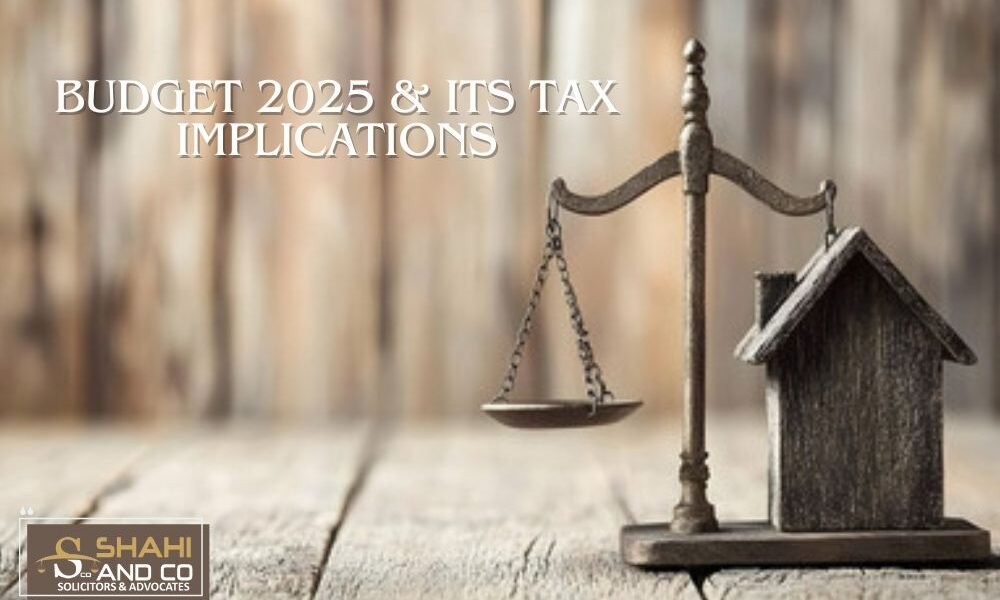The Union Budget is one of the most anticipated financial events of the year. It lays the foundation for the country’s economic policies, taxation structure, and public spending for the upcoming financial year. With Budget 2025 around the corner, individuals, businesses, and investors are eager to understand how it will impact their finances.
This article provides a comprehensive overview of Budget 2025, its key highlights, and the tax implications for individuals and businesses.
Key Highlights of Budget 2025
Although the official announcement is yet to be made, certain expectations and policy changes are already being discussed. Based on recent economic trends and government priorities, here are some anticipated highlights of Budget 2025:
-
Focus on Economic Growth & Development
The government is likely to continue its focus on infrastructure development, manufacturing, and digital transformation. Increased allocations for roads, railways, and urban infrastructure are expected, which could boost employment and economic activity.
-
Tax Reforms & Relief for Individuals
One of the most anticipated aspects of the budget is income tax reforms. There are speculations that the government might:
- Revise income tax slabs to provide relief to middle-class taxpayers.
- Increase the standard deduction for salaried individuals.
- Offer additional tax benefits for home loans and investments under Section 80C.
-
Corporate Taxation & Business Incentives
To boost entrepreneurship and industrial growth, the government may:
- Reduce corporate tax rates for small and medium enterprises (SMEs).
- Extend tax holidays for startups and technology-driven businesses.
- Provide incentives for green energy, electric vehicles, and sustainability initiatives.
-
GST Reforms & Indirect Tax Changes
Goods and Services Tax (GST) is a key component of indirect taxation. The budget might introduce:
- Rationalization of GST slabs to simplify compliance.
- Reduction in GST rates for essential goods and services.
- Measures to streamline ITC processes for businesses.
5. Focus on Digital & Financial Inclusion
With digital payments and financial inclusion gaining momentum, the government may announce initiatives such as:
- Encouraging fintech startups through policy support.
- Expanding digital banking infrastructure in rural areas.
- Strengthening cybersecurity regulations for financial transactions.
Tax Implications of Budget 2025
Taxation is a critical aspect of every budget, impacting individuals, businesses, and investors. Here’s how Budget 2025 might affect different segments:
-
Impact on Salaried Individuals
If income tax slabs are revised, salaried individuals may see changes in their take-home salary and tax liabilities. Some possible implications include:
- Lower tax rates lead to higher disposable income.
- Increased standard deductions reduce taxable income.
- Possible modifications in HRA (House Rent Allowance) and LTA (Leave Travel Allowance) exemptions.
-
Changes in Capital Gains Tax
Investors in stocks, real estate, and mutual funds should watch for changes in capital gains tax rules. The budget might:
- Introduce new tax brackets for long-term capital gains (LTCG).
- Provide exemptions or relief for small investors.
- Revise taxation on dividends and interest income.
-
GST & Business Taxation
Businesses should be prepared for possible GST amendments and tax compliance changes. Key areas to monitor include:
- Reduction in GST rates for essential goods, benefiting consumers.
- Improved refund mechanisms for exporters and manufacturers.
- Stricter enforcement of e-invoicing and digital tax compliance.
-
Impact on Startups & MSMEs
Startups and micro, small, and medium enterprises (MSMEs) might benefit from:
- Extended tax exemptions for newly registered startups.
- Simplified tax filing procedures for small businesses.
- Special incentives for innovation and research & development (R&D).
-
Real Estate & Housing Sector
The real estate sector plays a significant role in economic growth. Budget 2025 could introduce:
- Higher tax deductions for home loan interest payments.
- Incentives for affordable housing projects.
- Revised capital gains tax rules for property transactions.
How to Prepare for Tax Changes in Budget 2025
With tax policies evolving, individuals and businesses must plan ahead. Here are some steps to stay prepared:
- Review Your Income & Investments: Assess how potential tax changes could affect your salary, investments, and savings.
- Consult a Tax Expert: A financial advisor can help you optimize tax-saving strategies based on new provisions.
- Stay Updated: Follow official budget announcements and analyze their impact on your financial planning.
- Utilize Tax-saving Instruments: Consider investing in PPF, ELSS, and NPS to maximize tax benefits.
- Ensure Compliance: Businesses should keep up with GST updates and tax filing requirements to avoid penalties.
Conclusion:
Budget 2025 will shape the economic and tax landscape for the upcoming year. Whether you are an individual taxpayer, an entrepreneur, or an investor, understanding these changes is essential for effective financial planning. By staying informed and proactive, you can navigate tax reforms efficiently and make the most of new opportunities.
For more updates and expert tax guidance, stay connected with Shahi & Co.





